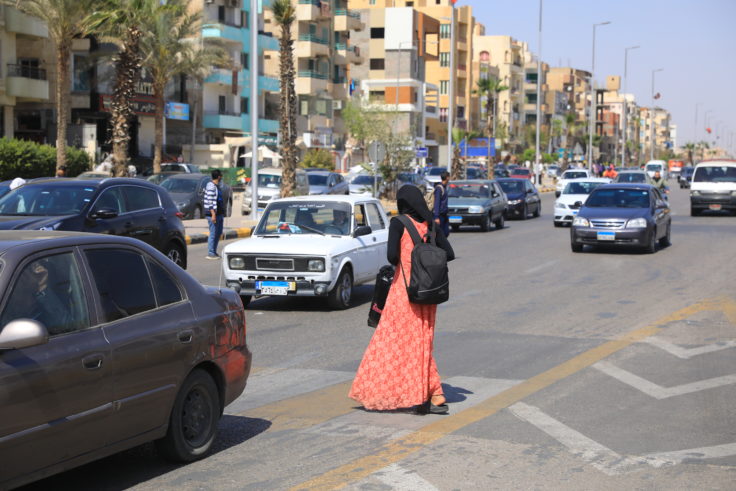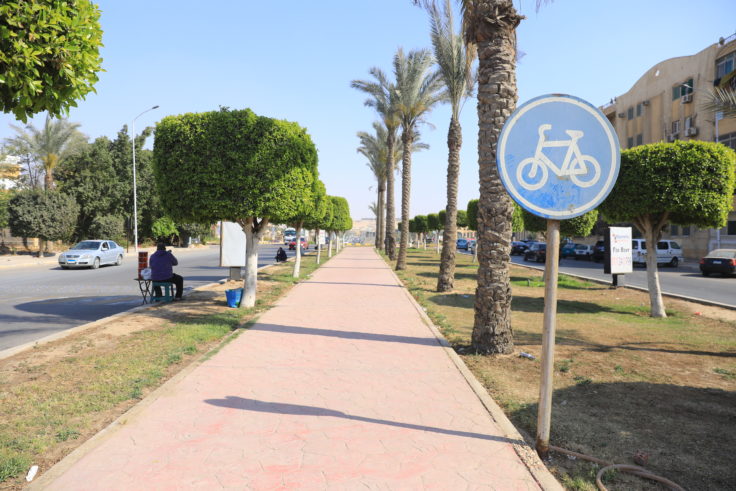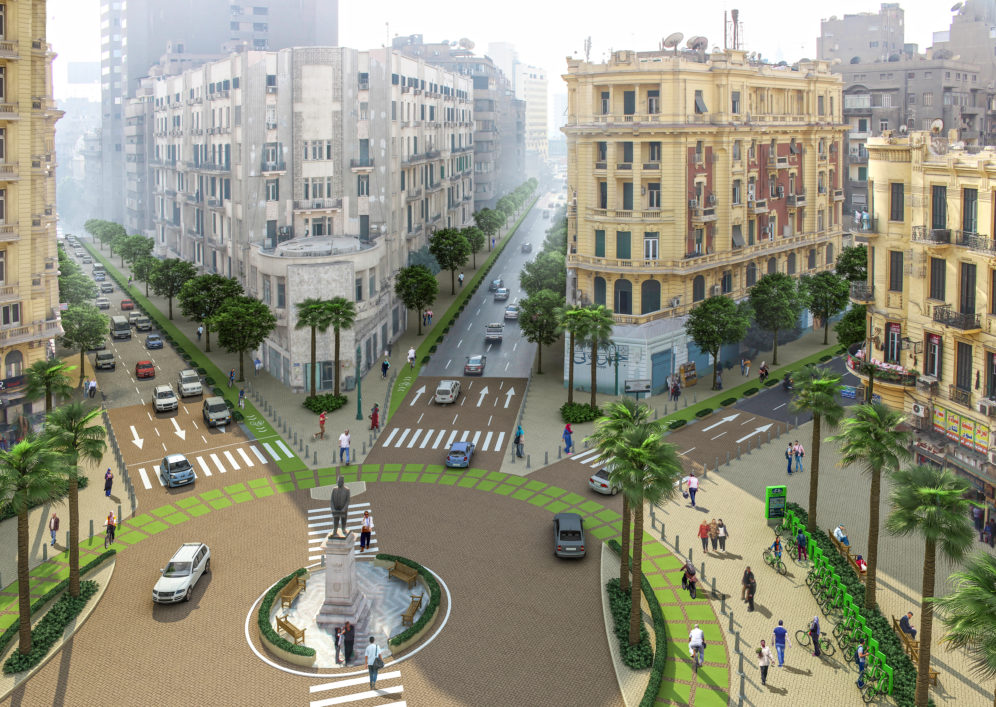 A render of bike lanes and stations at Talaat Harb square in downtown Cairo. The Cairo Governorate is implementing cycle tracks alongside the bikeshare system to improve safety
A render of bike lanes and stations at Talaat Harb square in downtown Cairo. The Cairo Governorate is implementing cycle tracks alongside the bikeshare system to improve safety
March 03, 2022
Insights from Cairo: Improving Mobility Through Bikeshare
Amid the global bikeshare boom, the call for bikeshare systems in African cities is gaining momentum. The unprecedented rate of urbanisation and increased vehicle usage has continued to exacerbate traffic congestion conditions in these emerging cities. However, with the continent’s growing young urban population, the majority of whom often walk or use public transport for their daily commutes, the potential for bikeshare is enormous.
Cairo, Egypt, is one of the cities spearheading the implementation of bikeshare systems. Greater Cairo is a dense, sprawling metropolis known for its daunting traffic jams. The urban agglomeration comprises two governorates, Cairo and Giza, and has a population of approximately 20 million. A lack of sufficient rapid transit options and increasing ownership of private cars has led to daily traffic snarls in the metropolitan area. The soaring fuel prices across the country are also driving many daily commuters to explore alternative transport options. Cycling is gaining momentum as a cheaper, efficient and more sustainable mode of transport for everyday commutes
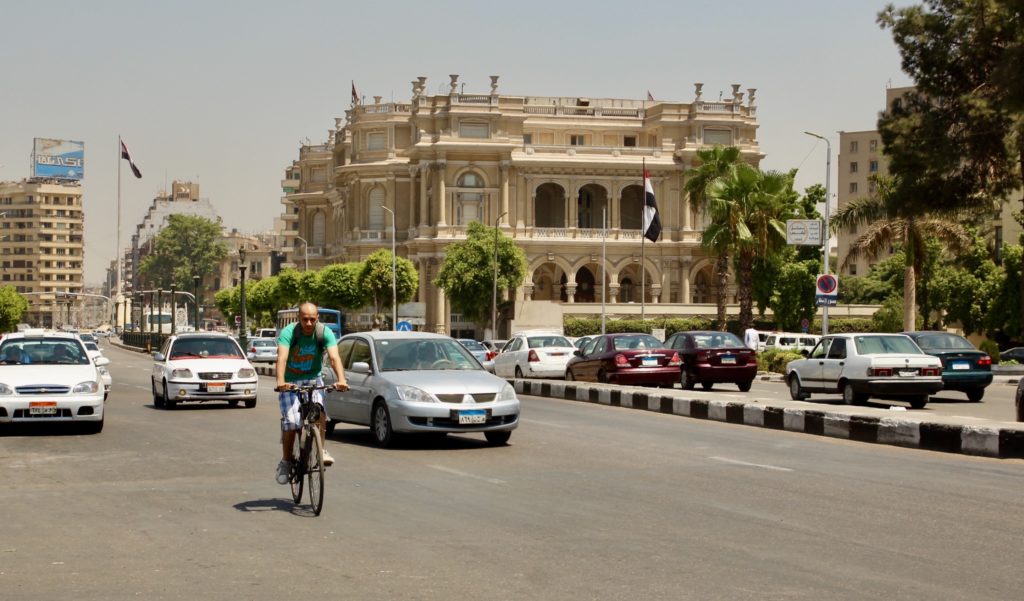
To promote cycling as a safe and healthy transport alternative, Cairo is on course to implement its first bikeshare system, with a fleet of 500 bicycles and a coverage area of 6.4 square kilometres, covering downtown Cairo, El-Sayeda Zainab, Garden City and Al Attaba. The project funded by Drosos Foundation, a Zurich based non-profit organization, is expected to provide low-cost options for short trips and improve access to education and employment opportunities.
The city is also constructing 15 km of protected bike lanes, the initial phase being along Kasr El Nil and Talaat Harb streets. The investment in high quality cycling infrastructure is expected to make a significant difference for cyclists in Cairo and ultimately contribute to the growth of a dynamic cycling culture.
As part of the implementation process, ITDP Africa in collaboration with UN Habitat, Drosos Foundation and the Cairo governorate undertook detailed planning of the bikeshare system: the station locations, station sizing, demand assessment, financial analysis and contracting of a bikeshare operator. After a competitive bidding process, the Rascom-Donkey consortium won the tender to operate the bikeshare system. Rascom is an Egyptian engineering firm which will be partnering with Donkey Republic, a Danish bikeshare company.
Bikeshare stations will be placed strategically close to metro stations, bus stations and public spaces to ensure easy access and promote multimodal options. The bikeshare system has the potential to improve accessibility in central Cairo by creating first and last-mile options, extending the reach of the metro and bus systems. The Cairo Metro network, which spans 78 kilometers with three lines carries around 4.1 million passengers per day and is reported to have the highest number of boardings per kilometer of any metro system in the world.
There are nearly half a million commuters using the metro stations within the bikeshare coverage area. Key station locations include, Al Sayeda El Zeinab, Saad Zaghloul, Al Sadat, Gamal Abd El Nasser, Oraby, Al Shohadaa, M. Naguib, and Al Attaba metro stations. Since bikeshare station sizes will be determined by observed foot traffic and the commute volumes of public transport hubs, Gamal Abd El Nasser station, Al Shohadaa and Al Attaba metro stations, which have the highest commuter volumes, are expected to have larger stations with additional bicycles.
To encourage participation in the bikeshare system, the city will be embarking on an intense campaign focusing on the economic, environmental, and physical benefits of cycling. At present, cultural barriers prevent many women from cycling in Cairo. The efficiency of public transport services places different burdens on women and men, with the costs of poor public transport often being borne disproportionately by women, who are less likely to have personal means of travel, making them more dependent on public transport. As women tend to chain trips and travel with goods or relatives in a caregiver capacity, their needs in mobility differ from those of men, who often commute to their place of work. The Cairo bikeshare system has the potential to expand women’s public transport options by providing another accessible mode of transport.
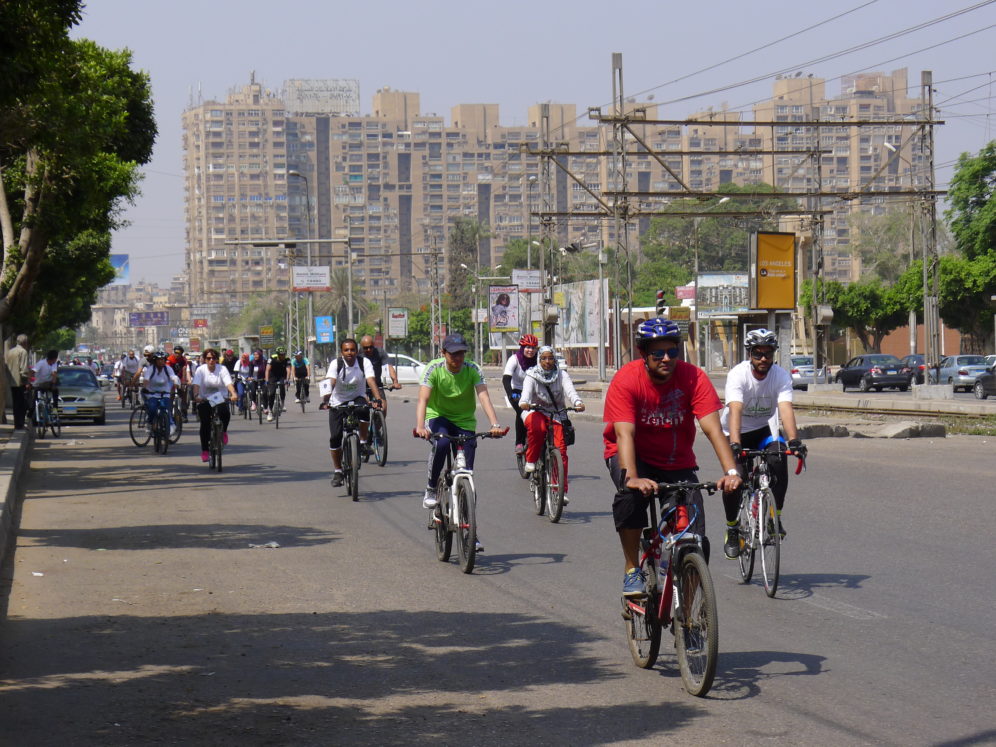
To explore how the Cairo bikeshare system can better meet the needs of women, ITDP held a focus group with women cyclists in Cairo in collaboration with UN-Habitat. The focus group revealed that women cycle for leisure or fitness and to run errands. However, many women avoid cycling due to lack of safe infrastructure and public physical and verbal harassment. To promote cycling among women, the city plans to offer bikeshare membership discounts, hold educational cycling events and involve women in the decision making process.
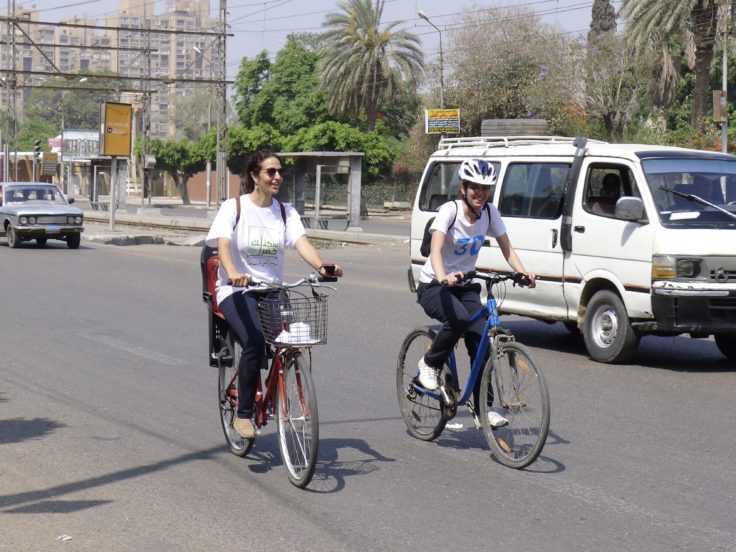
There are unique challenges expected in the bikeshare rollout plan. In many African cities, motor vehicle users are not used to sharing the road with non-motorized transport users, and sometimes motorized traffic elements encroach on dedicated cycling infrastructure. Public information campaigns and traffic police serving as road safety ambassadors will help motor vehicle drivers to give right-of-way to cyclists.
Adopting the bike share scheme, is expected to influence a modal shift from personal vehicle use to cycling and contribute towards reducing carbon emissions in the city. We are looking forward to the launch of the first phase of the bikeshare which will have an initial fleet of 250 bicycles.

